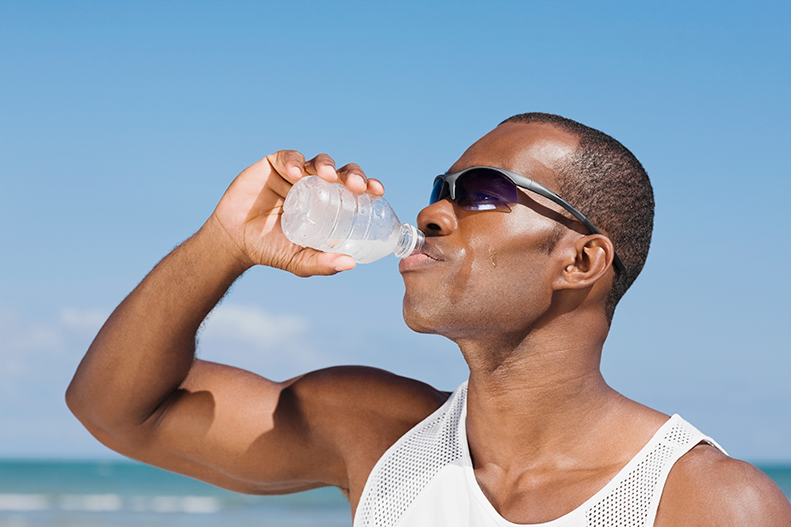Whether you’re vacationing on a tropical island or just hanging out in your backyard, chances are you are spending a lot of time outside this summer. Whether you’re enjoying reading a good book in your background with the sun beating down on you, or playing a rough-and-tumble game of summer touch football, it’s easy to work up a sweat and lose water as you soak up those rays.
To beat the summer heat, you must keep your body hydrated. Proper hydration is not only good for your brain, your mood, and your body weight, but it’s also essential for your heart.
The connection between dehydration and heart rate is clear. Your heart is constantly working, pumping about 2,000 gallons of blood a day. By staying hydrated – that is, by drinking more water than you are losing – you are helping your heart do its job. A hydrated heart is able to pump blood more easily, allowing the muscles in your body to work even better.
RELATED: Hydration 101: What You Need to Know
Never Miss a Beat!
Subscribe to Our HealthBeat Newsletter!
Thank you for subscribing!
You can now select the specific newsletters you'd like to receive.
You are already subscribed.
Subscribe to more newsletters in our email preference center.
Sorry, an error occurred. Please try again later.
Get Healthy Tips Sent to Your Phone!
Dehydration, Heart Rate, and Heart Health
Dehydration causes strain on your heart. The amount of blood circulating through your body, or blood volume, decreases when you are dehydrated.
To compensate, your heart beats faster, increasing your heart rate and causing you to feel palpitations. Also your blood retains more sodium, making it tougher for it to circulate through your body.
So how much water should you drink to stay hydrated? It really depends on how much your body needs. Some situations where you should drink more water include:
- If you are exercising or doing other physical activities.
- If you have certain medical conditions, such as diabetes or heart disease.
- If you are showing signs of dehydration, such as dizziness or weakness.
Please also keep in mind that certain medical conditions (such as heart failure) may require varying hydration strategies and consult with your physician as required.
Editor's Note: This article was originally published on , and was last reviewed on .
Sources
About Heart and Vascular Institute
The UPMC Heart and Vascular Institute has long been a leader in cardiovascular care, with a rich history in clinical research and innovation. As one of the first heart transplant centers in the country and as the developer of one of the first heart-assist devices, UPMC has contributed to advancing the field of cardiovascular medicine. We strive to provide the most advanced, cutting-edge care for our patients, treating both common and complex conditions. We also offer services that seek to improve the health of our communities, including heart screenings, free clinics, and heart health education. Find an expert near you.
